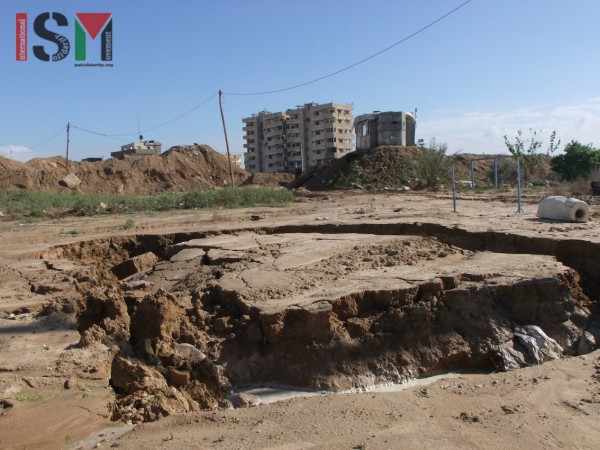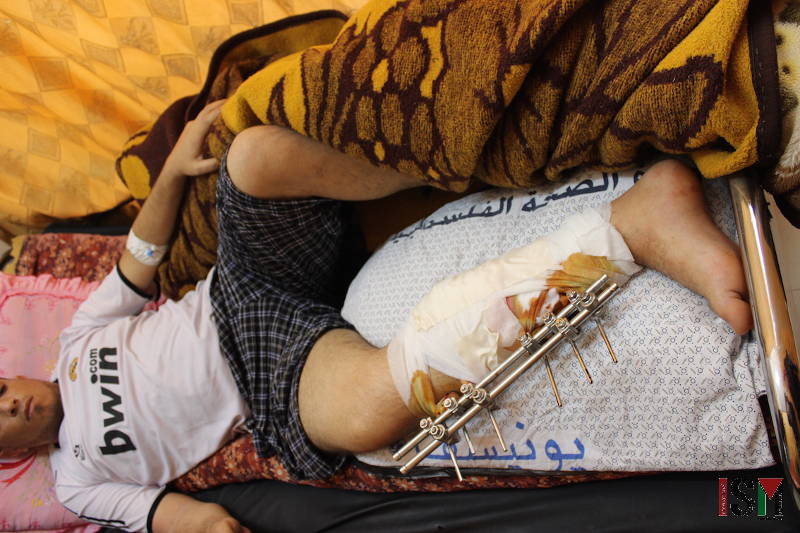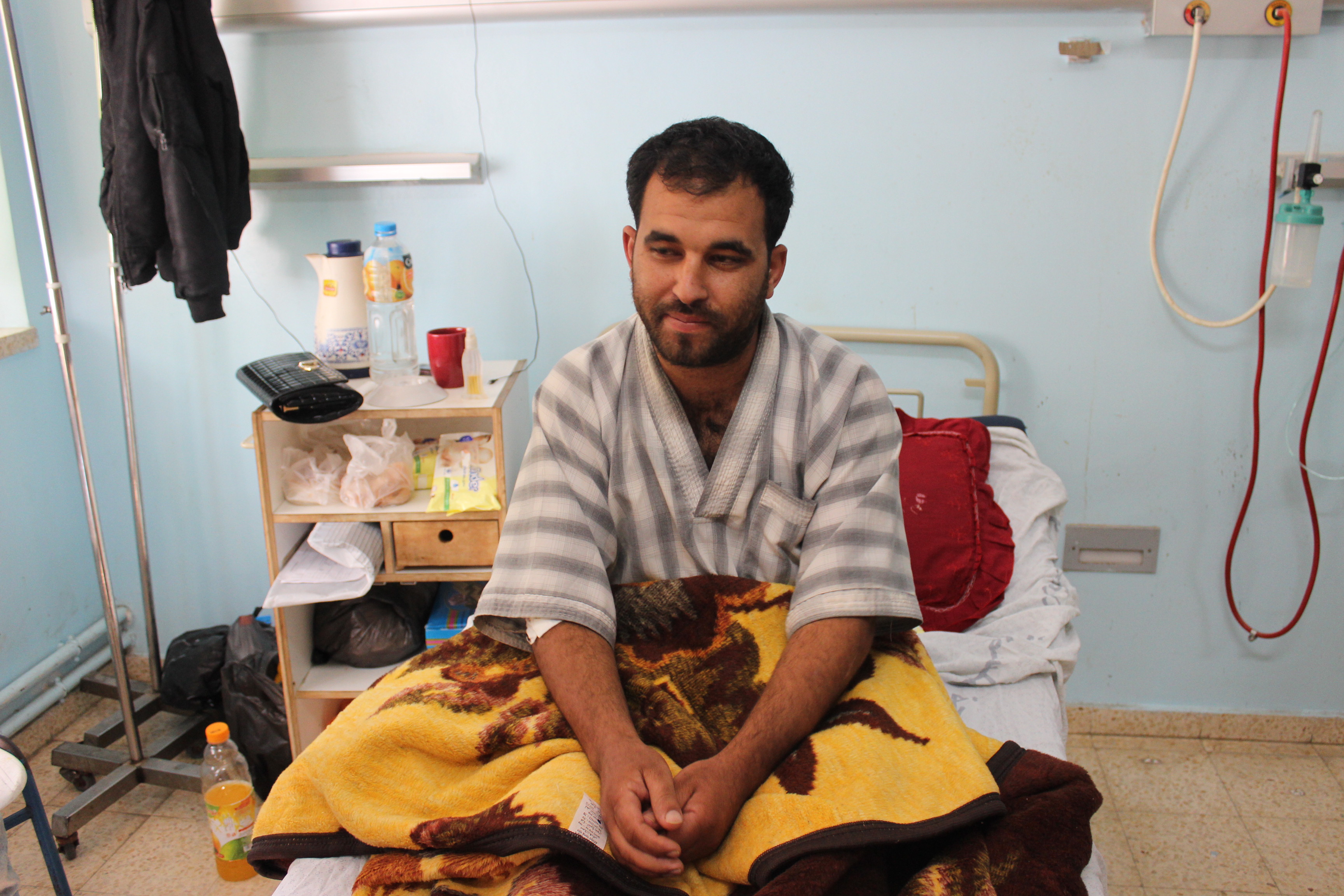Category: Gaza
-
Egypt’s seawater pumping project endangers Gazan’s lives
December 24th 2015 | International Solidarity Movement, Gaza Team | Gaza, occupied Palestine During recent months the subsidence of the land along the Egyptian border have become a great danger for the population of Rafah. This is due to the Egyptian project that has been pumping seawater all along its border with the…
-
Demonstrator injured last week in Gaza undergoing two surgeries
December 11th, 2015 | International Solidarity Movement, Gaza team | Karni border crossing, Gaza, occupied Palestine Last week, during the demonstration at Karni Border Crossing, Ahmad Nabil El-Akhsham (28 years old) was shot in the leg. He was there, as he had been every Friday since the beginning of October. At some point he and the other…
-
In Gaza, another farmer shot by a sniper for working his land
December 8th, 2015 | International Solidarity Movement, Gaza team | Khan Younis, Gaza strip, occupied Palestine A week ago Mohamed Abu Taima, 29 years-old and father of a small girl, was working his land 450m from the separation fence when an Israeli sniper shot him. At 4pm, he had arrived to his land in Al Faraheen,…



